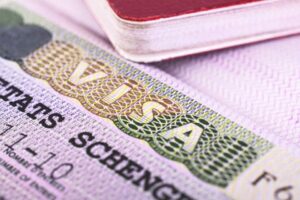The European Commission has approved a €120 million state aid scheme to Luxembourg under the Temporary Framework, according to an announcement published by the Commission.
The state aid scheme was approved as an effort to boost sectors of the Luxembourg economy that have suffered most greatly during the COVID-19 crisis and subsequent shutdowns.
“Many companies in Luxembourg, as in the rest of Europe, have seen their revenues significantly decline because of the restrictive measures necessary to limit the spread of the coronavirus. This scheme will enable Luxembourg to help these companies face their fixed costs that are not covered by revenues during this difficult time. We continue to work in close cooperation with Member States to find workable solutions to mitigate the economic impact of the coronavirus outbreak, in line with EU rules,” said Executive Vice President Margrethe Vestager, who is in charge of competition policy.
According to the announcement, the funds will be allocated across various industry sectors to include hospitality, accommodation, and entertainment.
More specifically, the scheme is intended to cover specifically fixed costs (costs that do not change for businesses such as rent and insurance) that businesses have had to deal with, as well as relieve their liquidity (selling off their assets) shortages.
“Under the scheme, Luxembourg plans to provide economic assistance to certain businesses, including those operating in the hospitality, accommodation and entertainment sectors, in order to help them face their liquidity shortages related to the coronavirus outbreak. The measure has an estimated budget of up to €120 million,” the announcement reads.
The scheme will be executed as direct grants to individual companies that have suffered a 40% or greater monthly decrease in of revenue from March 2020 to November 2020, relative to the same period last year.
According to the announcement, this aid will help businesses pay a maximum of 70% of their fixed costs not covered by revenues, and 90% for the fixed costs of micro and small businesses, with a maximum of €1 million per grant.
This amount of state aid will exceed the conditions laid out in the Temporary Framework, which is the fund set aside for assistance such as this.
The conditions set out for the aid in the Temporary Framework are:
- The aid will be granted no later than 30 June 2021.
- The aid will cover uncovered fixed costs incurred between the March 2020 and June 2021 period.
- The aid will be granted to businesses that have suffered 30% or greater losses compared to the same period in 2019.
- The aid will cover a maximum of 70% of uncovered fixed costs (90% in the case of small and micro businesses).
- Aid will not exceed €3 million per business.
- The aid will only be granted to businesses that were not considered to be in difficulty on 31 December 2019, with the exception of small and micro companies.
- Luxembourg will ensure that the rules for the Temporary Framework are respected and followed in all regards.
Other Schengen Member States have also received aid from the Temporary Framework in recent weeks, indicating that the travel, tourism, and hospitality sectors might be able to survive what are essentially universal lockdowns across the Schengen Area and EU.















